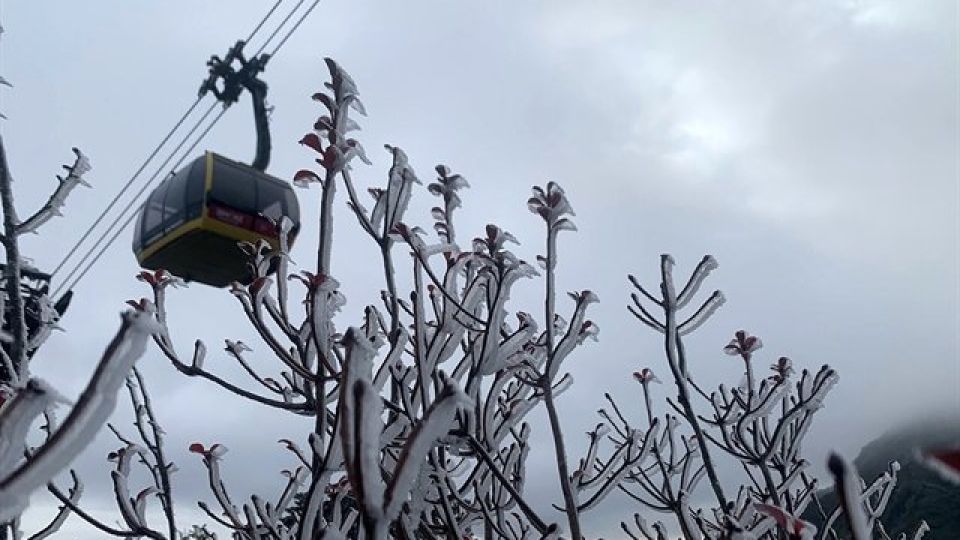December 20, 2022
HANOI — The National Centre for Hydrometeorological Forecasting said that the mountainous region in the north is likely to record sub-zero temperatures during the cold spell from December 18-22.
Humidity is forecast to drop below 50 per cent, while frost is expected at high altitudes.
According to Vũ Tuấn Anh from the Department of Weather Forecast, starting Sunday, the northern and north-central regions will experience a severe cold spell.
The temperature in the northern delta dropped to 10 degrees Celsius, four degrees lower than the previous day.
The mountainous region is expected to record a temperature of three to five degrees Celsius in several provinces of Lạng Sơn, Hà Giang, Lai Châu, Sơn La and Cao Bằng.
Sa Pa Town in Lào Cai Province on Sunday recorded sub-zero temperatures.
Light drizzle coupled with freezing temperatures formed a layer of thin frost on the tourist route and viewing deck at the Fansipan peak.
Hoarfrost covered the forest around the area. This is the second time the phenomenon was recorded at this location this year since November.
The forecast added that snow is unlikely to occur since this is a dry cold spell.
Local authorities have alerted residents in the mountains of Lào Cai, especially locations at 2,000m or more above sea level, on the possible damage of frost to agriculture and livestock.
The difference between day and night temperatures will also increase during this period, at approximately 20 degrees Celcius during the day, and eight to 10 degrees at night in the delta region.
Despite the cold, the capital city of Hà Nội is expected to see sunny days with a temperature of 16 to 19 degrees Celcius during the day, which then gradually drops to around eight degrees at night.
The low temperatures will also affect the north-central region, with severe cold expected from December 19-23.
Experts have warned people against using coal stoves for heating in closed rooms to avoid incidents and casualties, such as cases that have been recorded in the country in recent years.
People are also encouraged to store food, reinforce and cover their barns, and move their free-range livestock to the barns to avoid loss and damage, when necessary.


